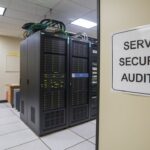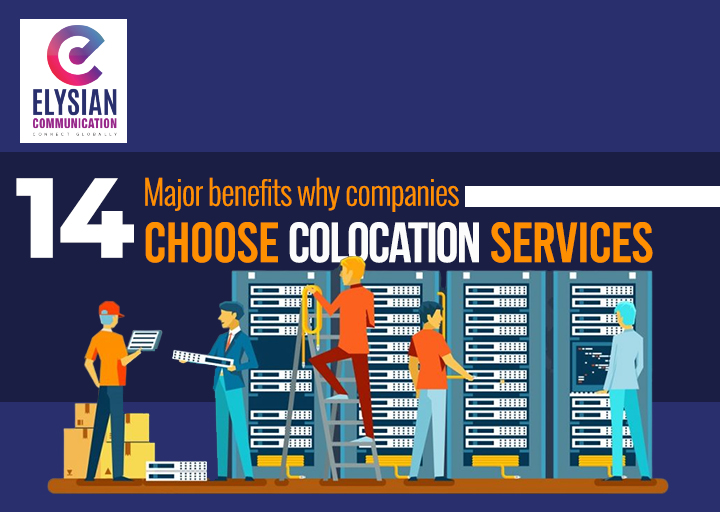The ability to store digital files is now a daily requirement. The digital economy is extremely important in our lives, whether for work, education, or socialization. As a result, there is an unprecedented demand for data storage and the colocation of data centers. The growing demand for safe, off-site storage made the modern data center possible.
In the past, business data was kept on internal servers and networking hardware. Many businesses turned to off-site solutions as “cloud storage” gained popularity. Businesses want to avoid being responsible for the expense and upkeep of running dated servers and data storage systems. However, the data must be stored someplace.
The primary remedy for this issue is colocation. It refers to having a third party house privately owned servers and networking equipment in an off-site data center (as opposed to the on-site situation where servers reside inside a room or a specific area of an organization’s facility). Renting space, frequently in the shape of a cabinet, allows you to “co-locate” equipment.
Businesses of all sizes benefit from colocation. Small firms can benefit from a large IT department without making a significant financial commitment. Small- to medium-sized businesses can increase their data storage capacity without spending money on expensive construction or facility leasing. Businesses can store equipment in a safe place with bandwidth, power, and a public IP address provided by the third-party service provider by using colocation.
1.Reliability
Colocation Services facilities offer server cooling, power, and communication systems that guarantee a continuous connection. Companies can invest in the tools and procedures needed to develop comparable systems internally, but doing so can be expensive regarding resources like employees and office space. Due to the various data backups, data centers also provide greater protection against power outages.
2.Performance
Electronic devices can be difficult to predict. It functions best in a climate-controlled, dust-free setting. Professional data centers’ cooling and air filtering systems are superior to those of even the cleanest offices. Colocation service provides redundant cooling systems, which means that thermal management is used to control component temperature and ventilation.
3.Physical Security
Data centers are constructed to safeguard your systems against theft and other dangers that could affect the security of your data. They impose strong data security regulations and higher levels of physical security, including mantraps, private suites, fire detection, and suppression systems, and video surveillance (a small space with two interlocking doors.)
4.Third-Party Maintenance
Most of the time, businesses consider server support equipment once there is a problem. The data center monitors, designs, and maintains server performance, with staff members and systems dedicated to this task.
5.Speed
Colocation Service facilities enable top performance in the event of connection breakdown or overload and cost-effective connections directly to numerous internet service providers.
6.Skilled Staff
Server monitoring and maintenance are handled on-site by IT professionals in data centers. Employing cutting-edge infrastructure and high-performance technology, skilled professionals construct and implement solutions.
7.Scalability
Your business can grow using colocation service, and you only pay for the space and bandwidth you use.Scalability and cost reductions benefit how effectively colocation facilities function. They are also important factors in a company’s shift to a colocation facility in a service provider’s data center.
8.Risk Management
Even while data breaches and natural disasters sometimes occur, when your important equipment is housed in an off-site data center, safeguards and backups are in place to ensure that operations can continue.
9.Better Connectivity
Data centers contain completely redundant network connections to guarantee the continuous operation of your project applications.Colocation data centres can also offer protection against cyberattacks and follow stringent physical security protocols. Nearly invariably, colocation facilities offer on-site technical support services.
10.Premium Network Security
Excellent network security is present in data centers, and the most recent firewalls are used to identify and stop illegal access to your systems.
11.Redundant Power Supply
Data centers offer redundant energy. Colocation services ensure they have power even when you don’t by using a combination of several power grids, generators, battery backup systems, and rigorous maintenance procedures.
12.Capability
Customers have the option to increase their bandwidth levels without having to make additional investments to meet their traffic needs. Colocation services decrease bandwidth costs by distributing data spikes over a long time among several users.
13.Growth
Colocation services allow data storage growth to meet business objectives. Businesses can expand their networks without investing in additional hardware or rental properties. Your IT infrastructure can easily and cheaply grow to suit your needs as your business expands.
14.A Stepping Stone
Colocation offers a mechanism to shift seamlessly to a cloud computing solution if your business is interested. The smooth transfer of systems is ensured by moving your equipment to an off-site location with greater capacity and performance.
Conclusion
Businesses have an alternative to storing data privately through colocation service. Does your company prioritize data security more highly than reduced maintenance? Your company might need more room for a strong IT infrastructure.
The answer is colocation service. Elysian Communication private limited offers reliable IT infrastructure, safe data storage, greater connectivity, and capabilities.





